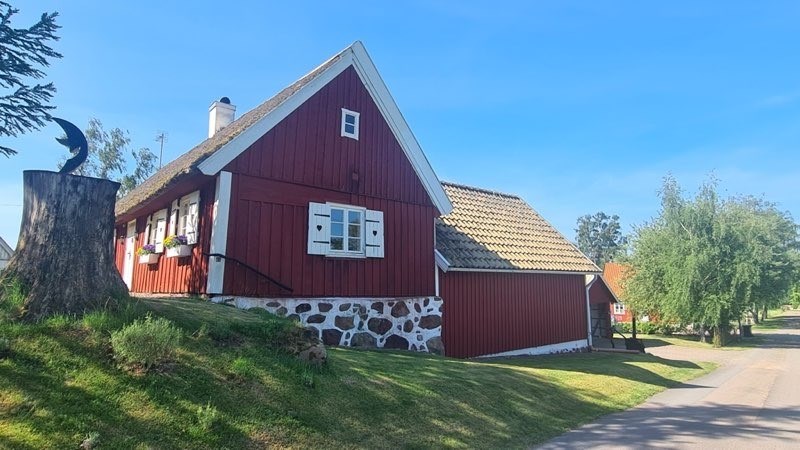Detta inlägg post publicerades ursprungligen på denna sida this site ;
Date:
Author: Charlie Buck, PhD Candidate, Politics, University of Toronto
Original article: https://theconversation.com/trumps-trade-war-represents-a-big-opportunity-for-canadian-conservatives-252997
A well-known saying in politics is to never let a good crisis go to waste. The governing Liberals have embraced this idea, calling a snap election for April 28. Their decision came amid United States President Donald Trump’s imposition of tariffs on Canadian goods and threats of annexation.
This moment presents a rare opportunity for Canadian Conservatives to rethink their approach. They can do this by tapping into their own party’s history of opposing American domination over Canada.
Canadians are often presented as mild-mannered patriots. But Trump’s mockery of Canadian sovereignty has upended that perception.
A recent Angus Reid poll found a surge in national pride. The percentage of Canadians who were “very proud” to be Canadian jumped from 34 to 44. At hockey games, Canadians are booing the American national anthem. And in grocery stores, shoppers are boycotting American products in favour of domestic goods.
Read more:
Trump tariffs have sparked a ’Buy Canadian’ surge, but keeping the trend alive faces hurdles
Once the party of anti-Americanism
This rising nationalism is an opening for Conservatives to draw on their own history.
Up until the 1980s, Canadian conservatism was the ideology most closely tied to anti-Americanism. From the United Empire Loyalists to John A. MacDonald’s National Policy, conservatism was about resisting American control.
Robert Borden’s 1911 election win, for example, was fuelled by nationalist opposition to free trade with the U.S. Borden’s motto, evoking MacDonald, was: “Keep Canada for the Canadians.”
Conservatives were also the party of Britishness. They supported the monarchy, the Red Ensign flag featuring the Union Jack and a strong central government. In contrast, the Liberals were the party of continentalism, hoping to achieve further economic and cultural integration with the U.S.
This dynamic reversed in the 1980s with the rise of neoliberalism. During the 1988 election, the Conservatives under Brian Mulroney, not John Turner’s Liberals, favoured free trade. The Liberal campaign even ran a memorable ad warning that free trade would erase the Canadian-U.S. border.
Since then, Canadian Conservatives have often been accused of wanting to “Americanize” Canada. Conservatives favour an elected Senate modelled on its U.S. equivalent. Economically, they mirror the market fundamentalism of American Republicans.
On foreign policy matters, Conservatives also align closely with American interests. When Prime Minister Jean Chretien refused to join the U.S.-led invasion of Iraq, it was met with strong criticism by opposition leader Stephen Harper.
Canadian uniqueness
Trump’s attack on Canadian sovereignty creates a chance for Canadian conservatism to return to its nationalist roots. Classical Canadian Tory thinkers — from George Grant to Donald Creighton, John Farthing and W. L. Morton — espoused a strong strain of anti-Americanism that animated all of their work. Indeed, it was this defence of Canadian uniqueness that defined their conservatism.
Read more:
Facing annexation threats, should Canadians lament for a nation — like George Grant did in 1963?
If there is one lesson to be taught from their work, it’s that Conservatives must champion Canadian identity in the face of American aggression.
Conservative Leader Pierre Poilievre should heed this lesson. He has pledged to “put Canada first” and continue the Conservative legacy of “warding off American designs to dominate our continent.” Yet he seems more eager to tear down Liberal Leader Mark Carney than to defend Canada from Trump.
These pro-Canada sentiments can’t just come from the leader. Nor should they be a short-term election strategy — they must represent a long-term vision.
The current crisis is an opportunity for the intellectual leaders of the conservative movement in Canada to reorient their ideology away from the Americanization of Canada. They can best do this by drawing from the tradition of British-style Toryism that defined the conservative ideology for the first century of Canadian nationhood.
Canadians are hungry for a party that celebrates Canadian patriotism and that builds up, rather than tears down, Canada’s heritage. They want a party that stands up to the American bully and strengthens national security by properly funding the country’s military.
Dialing it down
That means Poilievre must tone down his libertarian instincts in favour of the national collective good. Uninspiring commitments like increasing the contribution limit for tax-free savings accounts doesn’t match the required urgency. Hundreds of thousands of Canadians are worried they won’t have a job or the money to contribute to a tax-free savings account due to this trade war.
Market capitalism and the free flow of goods and people across borders creates wealth, but it also makes Canada more economically dependent on America.
Defunding the CBC might make good economic sense. However, it may also weaken Canadians’ sense of national identity and drive them further into the grips of American cultural influence.
Read more:
From dog whistles to blaring horns, Poilievre makes his case
Poilievre, and the conservative movement more broadly, should consider rekindling some of the anti-Americanism that has long been a key component of Canadian conservatism. Doing so might allow his party to seize upon Canadians’ renewed sense of patriotism and result in a Conservative win on April 28.
There might be a few Trump-loving conservatives alienated by this approach. But there are far more moderate voters to be gained by fighting for Canada under a truly conservative banner.
As the saying goes, don’t let a good crisis go to waste.
![]()
Charlie Buck receives funding from the Social Science and Humanities Research Council of Canada.

